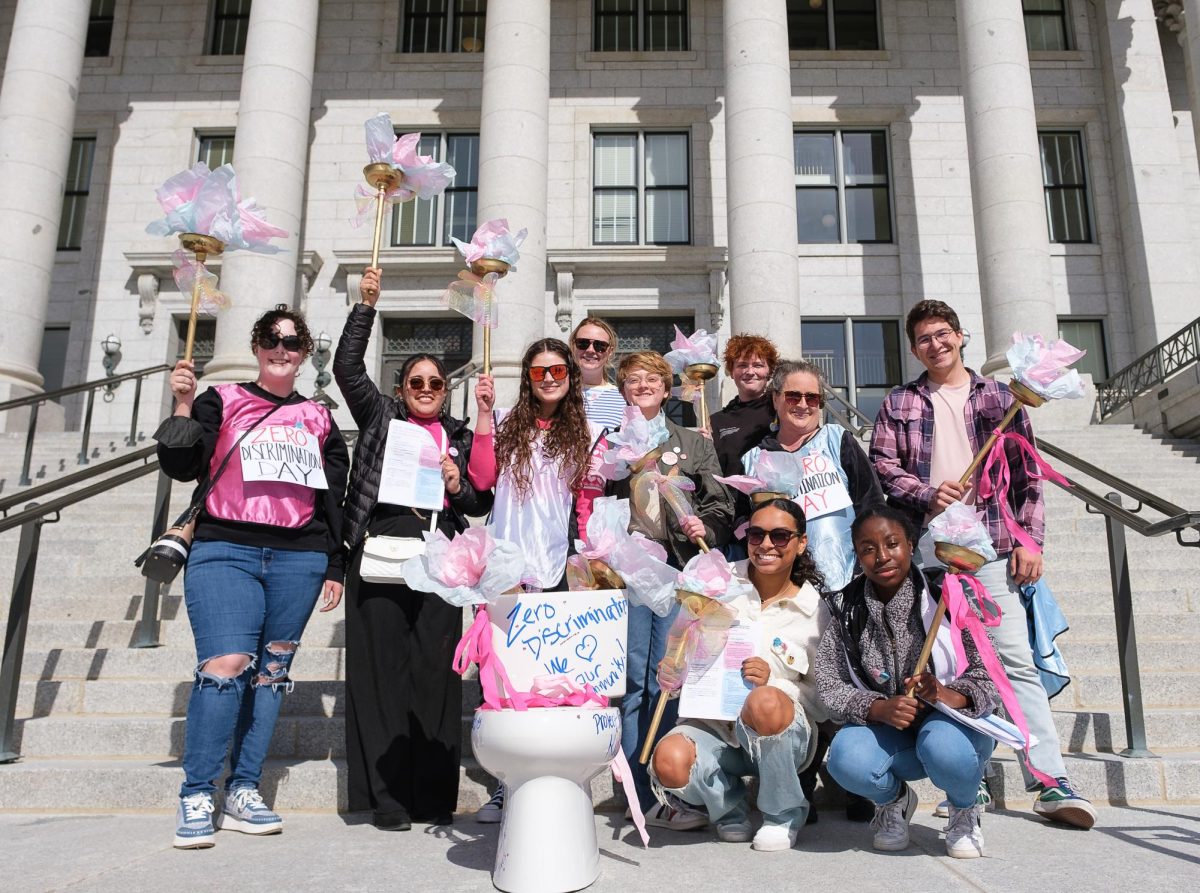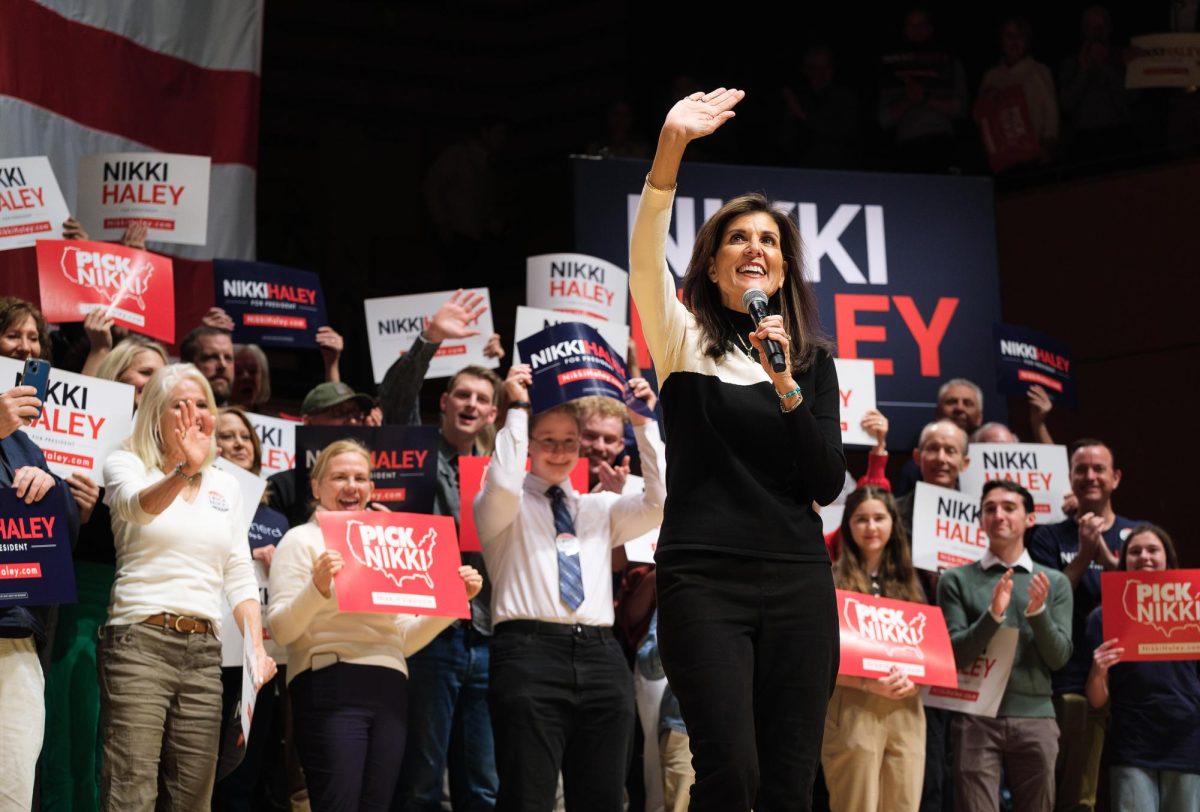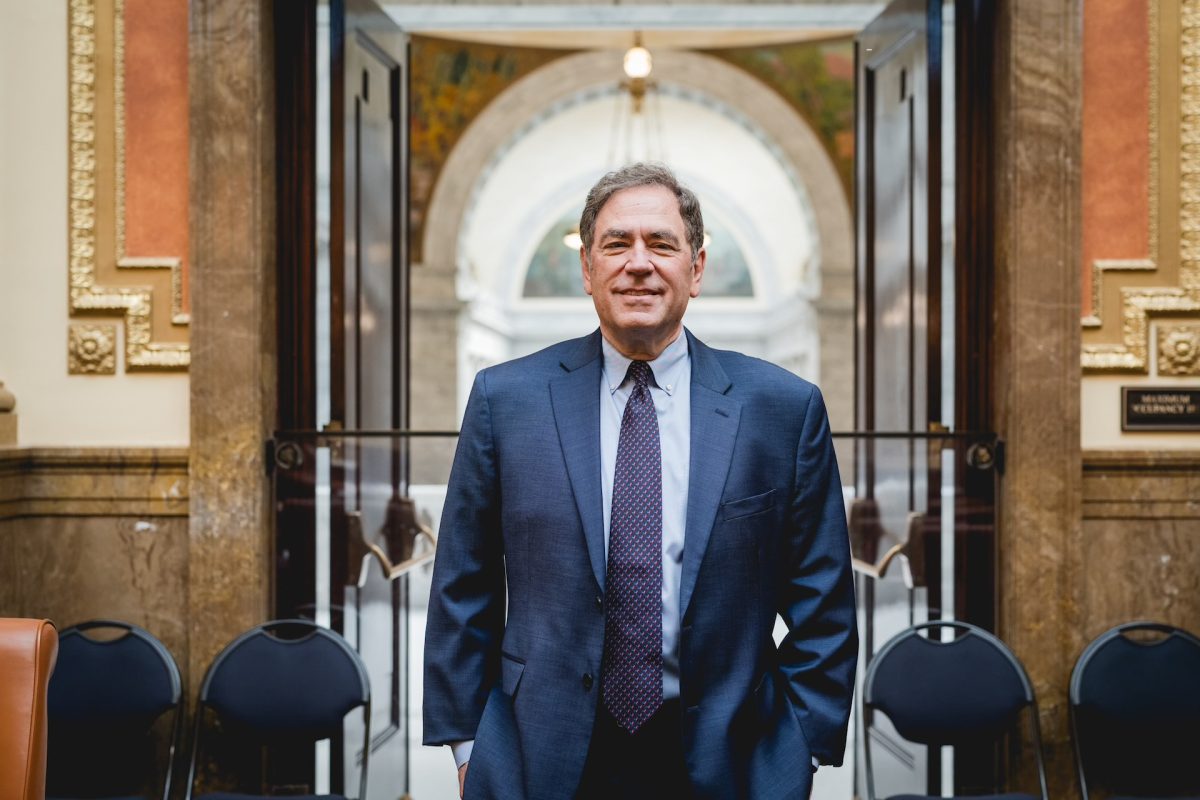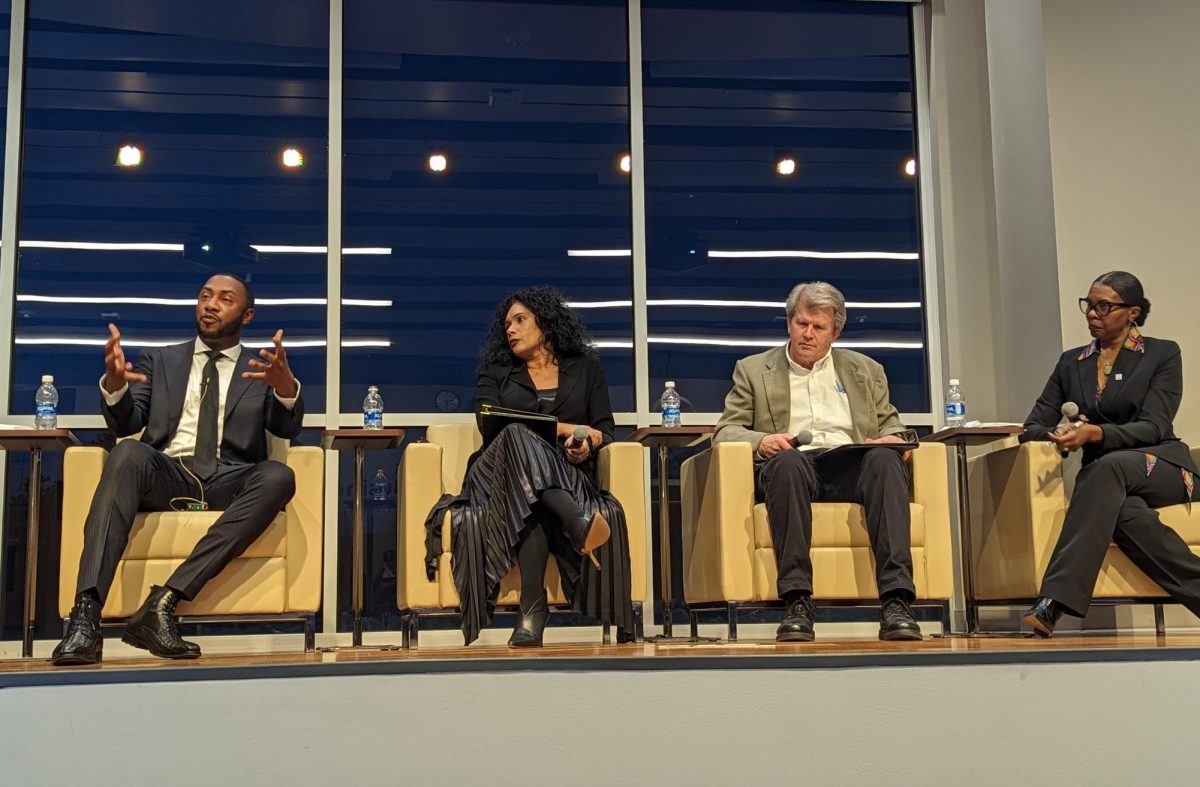
On July 8, the Israeli Defense Forces began bombing a small strip of land on the Mediterranean Sea, recognized as Gaza, a Palestinian territory.
More than 2,100 Palestinians were killed by the siege that lasted until August 27, according to the U.N. During that time, international and exchange students came to the U from countries around the world. Most were excited to study in the United States and improve their English.
Yet for Asala Nassar, the events in Gaza made her move to the U different than most. She is Palestinian, lives in Israel and her family is from an Arabic village there.
She watched images of bombs falling on Gaza from her family’s TV before coming to the U.S. Nassar said her family stayed up all night watching as the Israeli Defence Forces bombed cities, and attacked Hamas.
“Both nations [Israel and Palestine], we don’t really know anything about each other,” Nassar said. “But we live in the same country.”
When Israel became an independent country in 1948, Arab Palestinians living in the boundaries were made Israeli citizens. As a result, Nassar has an Israeli passport and ID, meaning her official country is Israel. She said that growing up Palestinian in Israel was difficult. Although Palestinians generally speak Arabic, the Israeli government does not recognize the language, and thus Nassar said she had to learn Hebrew. Yet Israelis are not required to learn Arabic.
Due to this, she said the two sides have a barrier to understanding each other, not just because of the language, but because of the cultural differences. To address this, Nassar said organizations try to bring together students of both backgrounds.
She participated in a program that brought Israeli and Palestinian high school students together to talk to each other. She participated in two of these groups, and said that both times she was shocked. The friends Nassar made through these groups still stay in touch, she said, with some being Palestinian and some Israeli. But even with the programs, Nassar said the atmosphere between the two backgrounds is not peaceful.
Hadeel Alkebsi, an exchange student from the Yemen in business management, said she believes more violence will not solve the issues in Gaza.
“I don’t think it should be that way. They can deal with it in a different way, not with fighting,” Alkebsi said. “Innocent people are dying.”
Despite the attempt to bring together two opposing backgrounds, the conflict is not over and will likely result in future fighting as Palestinians recover from the recent war. Nassar said the strong feelings on both sides originate from complicated sources. One source is the treatment of the Arabic minority both in Gaza and Israel.
“In Arabic villages inside Israel, the conditions are not so good. Schools are not like Jewish schools; streets are not that good,” she said.
During the conflict, thousands of buildings were destroyed in Gaza. According to the U.N., of the 1.8 million people living in Gaza, many live in refugee housing or live in crowded apartments. Gaza’s lack of a seaport or dedicated channel of commerce means the area’s infrastructure was lacking before the bombing.
Opening up a port and a channel for commerce were two of the demands Nassar said Palestinians in Gaza have made of the Israeli government prior to the 50-day war. Other issues the people raised were the lack of sufficient food, electricity and goods, according to UNICEF.
“We went protesting every day just to say stop the massacre against Gaza. People were so angry,” Nassar said. “I went every chance I could and screamed with all my strength because I just needed to do this, express my anger and my sorrow for them. I watched people crying for everything. They had every reason to cry.”
According to the Prime Minister of Israel, Benjamin Netanyahu, Hamas is equal to the threat that the Islamic State in Iraq and Syria poses, an organization President Barack Obama has said the U.S. will perform airstrikes against in the coming weeks.
Nassar said most Palestinians feel that Hamas is their only form of defense, and the only entity capable of making their demands of Israel a reality. She also said that life in Israel as an Arab is better than life in Gaza, but that her own village has been subject to some injustices of democracy.
As the 50-day war went on, the protests in Nassar’s village continued. At one point, though, she said Israeli police attempted to stop the protests. Nassar said the Israeli police used sewage to keep the protestors from going into the streets.
“They would bring a tractor full of sewage and throw it onto people to stop them from protesting,” she said.
Nassar said she understands the Israeli point of view, as she is fluent in both Hebrew and Arabic, and watched coverage in both languages of the bombings in Gaza. The Israeli government’s reasoning behind their initial attack on July 8 was to eliminate Hamas. The U.N. has said most of the causalities were civilians. In addition, some of Israel’s targets were U.N. shelters. The majority of deaths in the crises were Palestinian, however 71 Israelis were reported killed.
“No one was killed in Israel,” Nassar said. “[Israel] should defend [itself] in ways that are fair.”
The American government’s position towards the conflict leans toward Israel. During the conflict, Congress approved a $225 million bill for Israel’s missile defense system. In response to this, Nassar said this does not mean the American people support what is happening.
“I love to have this conversation with people to give a real idea of what is happening there,” she said. “Most Americans are not involved in these politics.”
Although attacks have ceased for both sides, Nassar said the issues are still unresolved and violence will continue, as it has in the past. In her village, every October, the people commemorate the death of two 18-year-old men who were killed for protesting in 2000. She said the events still affect the town and most villages have stories similar to hers.
“I think because we don’t understand each other, that’s why the conflict exists,” Nassar said.
[email protected]
@tonycalo1
Write for Us
Want your voice to be heard? Submit a letter to the editor, send us an op-ed pitch or check out our open positions for the chance to be published by the Daily Utah Chronicle.
@TheChrony
Print Issues
Write for Us
Want your voice to be heard? Submit a letter to the editor, send us an op-ed pitch or check out our open positions for the chance to be published by the Daily Utah Chronicle.
@TheChrony
Palestinian Student at the U Speaks of Conflict
September 21, 2014
Leave a Comment





















